Business Lending
How a Former Banker is Servicing Clients that Turned Down Alternative Funding Offers
December 15, 2021 What do brokers do with the clients that don’t want to pay the costs of an alternative product, but are still too underqualified for traditional financing?
What do brokers do with the clients that don’t want to pay the costs of an alternative product, but are still too underqualified for traditional financing?
Juan Caban, CEO and Co-Founder of Financial Lynx, has leveraged his interpersonal relationships as a former banker with his passion for networking and his discovery of a niche type of client into a business that is now spread across 44 states. Lenders aren’t the only ones turning down deals, the applicants do too, he says.
Caban built a referral business by talking to people, being an active member of the industry, and taking advantage of pandemic-induced halts in business to research the best ways to serve a section of business owners that prior to Financial Lynx, were either using less attractive products or never taking on financing at all.
“I’m a big networker,” said Caban. “I always go out, I meet a lot of people, I always get referrals from a lot of different areas.” He spoke about how as a decade-long banker with major banks, he knew right off the bat in his career that traditional financing was excluding financially-sound merchants who weren’t meeting overzealous bank qualifications.
“I would meet people who want to do business with me and I would present it to my bank, but it was always a challenge,” Caban said. “You want to help out a client, but you’re limited to the credit appetite of the bank that you are working for. After getting frustrated and declining a lot of clients, I wanted to seek out how I can help these clients out.”
After leaving the traditional finance world in 2019, Caban began work at an alternative lender, where the doors to a variety of new options opened up for him.
Caban still felt limited in his abilities to get deals done because of the confines funders mandate through their qualifications, and left to start his own company within seven months. After seeing a market in financing for merchants who fall between the high risk and traditional financing qualification threshold, he began talking to people across the financial community about what products exist for these types of clients.
“I used my banker network, I probably know about 200 bankers here in New York, and I started asking them, ‘hey, do you have a program in your bank that can help this type of client?’” Seeing that merchants with good credit and no desire to pay a 40% cost of capital were being pushed aside throughout the industry, Caban decided to pursue a business out of servicing this type of merchant.
“What I found was that there are some banks out there that as long as [the merchant] has a 700 FICO score, has been in business at least two years, and are considered to be in a preferred industry, some banks are willing to lend in some cases 20% of annual sales, up to $250,000, with just an application and one year of tax returns.”
The lending services being provided through Financial Lynx based on these qualifications are bank lines of credit that revolve and renew annually.
Caban described the qualifications for this type of financing as a look into the business owner themselves, and not as much into the business. “[These banks] focus on you as an individual and if you have personal credit.”
The concept took off.
“I started working exclusively with one MCA broker shop, they were calling hundreds of businesses a day,” said Caban. “They were trying to sell [merchants] cash advances obviously because it is a very lucrative commission business, but anything that was non-cash advance, or didn’t fit the cash advance space, or merchants who wouldn’t accept the expensive cash advances, they would refer that client to me.”
The twist is that the banks don’t pay him a commission so he has to charge a fee to the merchant once the financing is completed.
“At the end of the day I feel good because I am providing the client with something that they couldn’t find on their own,” Caban said. “So I am helping the client, and almost 100% of my clients are satisfied with what they have, because they’re getting cheap financing, 5% instead of 30% money, so even with my 10% consulting fee to connect the client, it’s still 50% cheaper than what they would’ve gotten in any type of cash advance.”
The biggest hesitancy Caban sees from alternative finance companies in terms of working with his niche product and client is the patience required in dealing with bigger banks. “Everything is quick in MCA, [brokers] get approved today, get funded today, and get paid tomorrow. I say look, I can provide the client what you’re looking for, but it is a three week process.”
“The ones that say, ‘hey we want to do what’s best for the client,’ they buy into it, they send us referrals on a constant basis,” Caban continued. “The ones that say ‘it’s taking too long, they’re not into it’ and I tell them ‘you’re going to lose that client eventually.’ As opposed to losing them, make some money out of it before you leave them.”
Trying to convince the legitimacy of his product seems to be part of the daily ritual for Caban. “Having a bank line of credit is considered a unicorn in the industry. Everyone says that they have it, but it’s not really a line of credit. We’re actually providing true lines of credit. It’s truly a revolving line of credit.”
“It’s always a thing where it’s like, are you for real?”
QuickBooks Capital’s Small Business Lending Originations Surge
December 13, 2021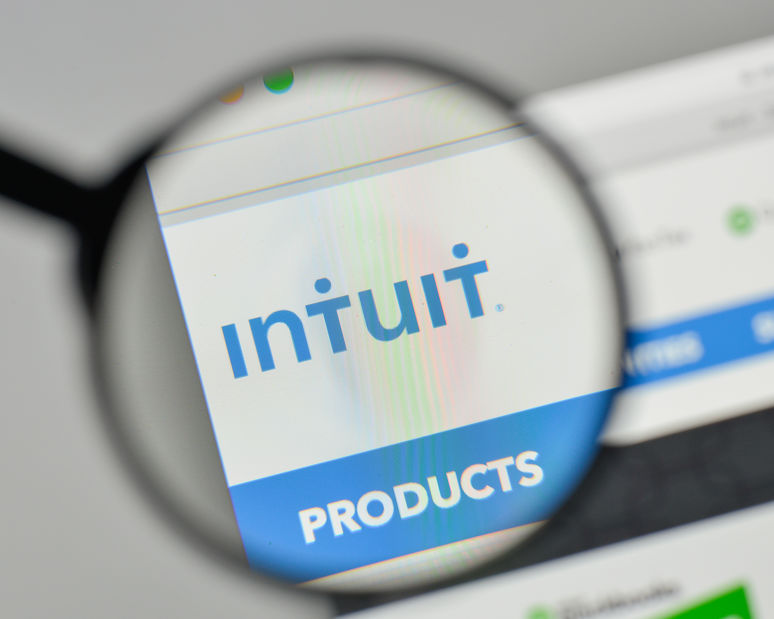 QuickBooks Capital, part of Intuit, originated $125M worth of small business loans in the fiscal quarter ending October 31, 2021.
QuickBooks Capital, part of Intuit, originated $125M worth of small business loans in the fiscal quarter ending October 31, 2021.
For context, the company originated $232M across the entire fiscal year of 2021 ending on July 31st and $243M for the entire fiscal year of 2020. The company’s best fiscal year so far was 2019 when it originated $316M.
The company is now on track to surpass all previous years.
During the earnings call, CEO Sasan Goodarzi said that one of the company’s big bets is “to become the center of small business growth by helping our customers get customers, get paid fast, manage capital, pay employees with confidence and grow in an omnichannel world.”
“60% of small businesses struggle with cash flow and we are continuing to innovate to create solutions for customers to overcome this challenge,” Goodarzi said.
Intuit recently acquired Mailchimp and acquired Credit Karma last year.
SMB Lending Fraud Being Combatted with Fintech, AI
December 9, 2021 After almost a month in service, Linear Financial Technologies has seen success with its machine learning fraud detection program, Linear Defense. The technology is used to help prevent fraud in all stages of small business lending.
After almost a month in service, Linear Financial Technologies has seen success with its machine learning fraud detection program, Linear Defense. The technology is used to help prevent fraud in all stages of small business lending.
“Since launching Linear Defense last month, market feedback has been very positive,” said Sandip Nayak, Chief Strategy & AI Officer at Linear Financial Technologies, exclusively to deBanked. “We are actively deploying the solution with our first fintech client and have a second major client, [our] first bank client, preparing to deploy Defense in early 2022.”
According to Nayak, Linear Defense is leading the way in fraud prevention since its release. “We have engaged with a number of banks to test Linear Defense on their customer channels, and the solution has shown it can outperform existing fraud programs in accurately and efficiently detecting fraud.”
Linear Defense gains its predictive power through unsupervised machine learning. The software can be taught to detect fraud in multiple types of financial products and applications, using any combination of first party, third party and alternative data to determine its detection algorithms, according to the company.
”Fraud costs the global economy trillions annually, in terms of actual fraud and lost business opportunities from ‘false-positives.’ Now more than ever, financial institutions and other companies delivering financial services products are concerned with the increasing sophistication of fraudsters and are searching for more effective tools to keep up,” said Linear CEO Sam Graziano.
The company claims they have created a simple, lightweight solution that clients consume through an API, seamlessly integrating into their current origination, customer onboarding, or other operating systems.
“Linear Defense is a one-of-a-kind, AI-based fraud platform that surpasses existing market solutions when it comes to detecting financial crimes and fraudulent activity. Using true alternative data and deep learning algorithms, the platform has the unique ability to auto-calibrate to a client’s specific channels and customer population,” said Nayak.
“The solution’s superior predictive power enables clients to reduce the manual touch points required to onboard new customers,” said Nayak. [It’s] creating a better experience for consumers and SMBs, and a more secure process that protects our clients against bad actors.”
Broker Fair is HERE
December 5, 2021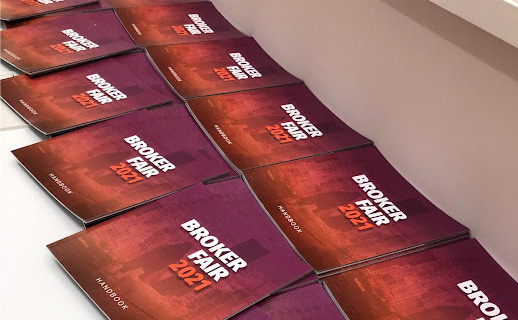 Monday kicks off Broker Fair 2021 at Convene at Brookfield Place in lower Manhattan. The venue can be found on the 2nd floor of 225 Liberty Street. You must have a ticket and proof of vaccination to enter. The event is sold out.
Monday kicks off Broker Fair 2021 at Convene at Brookfield Place in lower Manhattan. The venue can be found on the 2nd floor of 225 Liberty Street. You must have a ticket and proof of vaccination to enter. The event is sold out.
deBanked TV will be streaming live from inside the venue where host Johny Fernandez will be talking to attendees throughout the day. You can tune in to watch live on debanked.tv starting in the morning on December 6th.
If you see the below entrance on the 2nd floor of the building on December 6th, you’re at the right place:
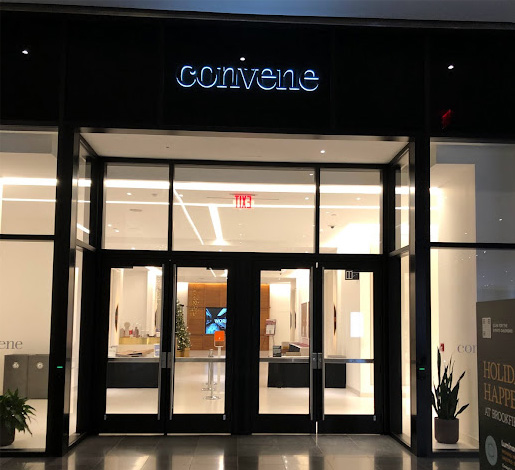
Citi Uses Branding and Fintech to Bring Merchants Directly to Funders
December 3, 2021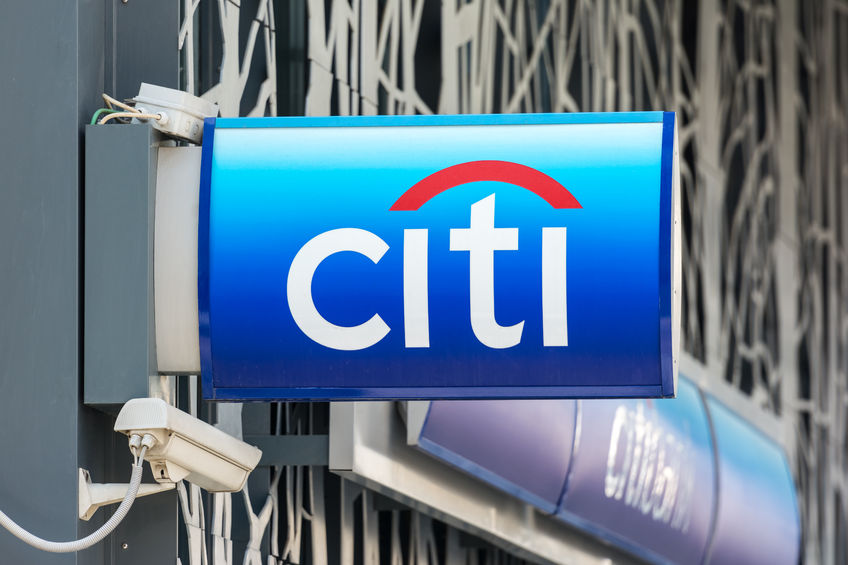 Citi’s release of Bridge, a virtual loan broker offering merchants a three step process to apply for capital through over a dozen banks, has branched out across seven states and is continuing to grow four months in— according to recent LinkedIn posts from Citi employees.
Citi’s release of Bridge, a virtual loan broker offering merchants a three step process to apply for capital through over a dozen banks, has branched out across seven states and is continuing to grow four months in— according to recent LinkedIn posts from Citi employees.
“I am excited to announce I have been working on a new and innovative platform along with the Citi team for the past few months!” wrote Caitlyn Boyle, Assistant Vice President and member of the team who designed Bridge. “I am extremely proud to be part of such an amazing team, and to assist in building out a great platform to connect small and medium sized businesses with local, regional, and community banks.”
“If you are looking for a loan, do not hesitate to visit our platform!” Boyle wrote.
Richard Banziger, Head of Citi’s U.S. Commercial Bank, commented during the launch of the program about Bridge’s potential to not only improve the application process for merchants, but how the program gives access to capital that will be given to minority business owners who may have never been able to get access to that capital in the past.
“Citi believes in the power of local, small businesses and continues to find ways to support businesses that are the foundation of communities across the U.S. Citi funded loans totaling more than $5 billion as part of the Small Business Administration’s Paycheck Protection Program during 2020 and 2021.”
“As both a lender and a community stakeholder, we have a deep understanding of the problems businesses face when trying to navigate the borrowing process” said Banziger. “We are committed to finding digital solutions that can make the process easier, more seamless and more equitable.”
According to Citi, Bridge’s goals are broken down into five points. They hope to create liquidity and access to capital, modernize and automate prospecting, add digitization, transparency, and standardization to the loan process, continue to digitize small and medium sized business lending, and democratize the loan process for lenders and brokers.
“Citi prides itself on encouraging a spirit of entrepreneurship among its employees to solve financial access issues and improve digital offerings for our clients and community partners,” said Vanessa Colella, Citi’s Chief Innovation Officer.
Loan options range from as little as $100,000 to as high as $10,000,000.
The Broker: A Sister Duo Gets Borrower-Centric
November 29, 2021
When the company she worked at was halted by pandemic woes, Porsha Brooks, then an MCA salesperson, was asked by her sister Mercedes how they could get together and pick up where her other company left off. “My sister approached me at that time saying, ‘well what is it you’re doing, I want some action in that’, then I said, ‘that action is kind’ve drying up— but we can do our own thing, we can start our own business.'”
“So, that’s what we did.”
While offering a suite of loan options to their clients, Porsha spoke with deBanked about how her experience in sales, combined with her small business finance knowledge, has powered the creation of a borrower-centric lending product through their company, Brooks Partners Finance.
“As far as MCAs go, I’m not pro or against it, but at the same time, I know what they are,” said Brooks. “The industry for the most part, every MCA [funder], every broker, is pushing MCAs. Everyone is pushing MCAs. But I see that it really does do a detriment to businesses and business owners.”
Although Brooks Partners still writes MCA deals, that’s only if that is the best option for the client at that time. Brooks claims her company’s business model isn’t to push businesses into whatever type of loan makes sense for her company, but rather the opposite, using different types of tools to figure out exactly what loan is best for the borrower.
“If I have every option for that individual, I don’t have to push them into an MCA,” Brooks continued. “I can still get paid, and still do right by that business owner.”
When speaking about her past work, Brooks spoke about how coming up in an all-male environment was actually a motivating experience.
“They quickly judged, saying ‘you know, she’s a woman, and she’s probably not going to last here for too long, because they normally don’t’ and it turns out I did,” said Brooks. “Three months in, I rose to be one of the top salespeople at the firm. Within that time, I got the attention of both partners at the firm, and I would say about a year in, I was promoted to head their new banking department.”
But when the pandemic slowed the business down, it led to the genesis of Brooks Partners Finance. “I already had certain contacts, I had my foot in the door, and I had a taste for bank loans,” said Brooks.
“I’d say the biggest moneymakers for us are SBA and conventional [loans],” said Brooks. “We have a range of banks that we work with and we are able to give to individuals, not just existing businesses, but startup businesses too. We’ve learned the SBA world like the back of our hand. We’ve been studying this for several months, we basically have to know everything about how to get somebody approved for an SBA.”
With access to these types of loans being notoriously difficult for small businesses to qualify for, Brooks spoke about how teamwork between a broker and a merchant can lead to a plan for approval.
“We’re different [from] most brokers in the industry; we’re very, very hands on here. We stay on from the onset until the funding process. Now what we’re doing is we’re holding our clients’ hand. We’re telling them how they can get qualified, taking them through that process, we’re working with the lender, and not letting the lender cut us out.”
“We make sure that we stay in our lenders’ faces for our clients’ benefit,” Brooks continued. “Making sure we are always a part of that process and making sure things go smoothly, so we do get a lot of SBAs and conventional loans done.”
“I’m not just the ordinary middleman, I am supposed to help [my] client and guide them to their best loan option for their business,” Brooks continued. “If I don’t know where I’m sending them or don’t know if they’re going to be qualified, I am doing them a crazy disservice to my client. That’s where we differ.”
Broker Fair Ticket Registration To Shut Off Any Day Now
November 28, 2021 Broker Fair 2021 ticket registration will shut off days before the December 6th event. The broker-centric conference is now officially counting down to its kickoff at Convene in New York City.
Broker Fair 2021 ticket registration will shut off days before the December 6th event. The broker-centric conference is now officially counting down to its kickoff at Convene in New York City.
“This pretty much happens every time we put on a show,” said Broker Fair founder Sean Murray. “Even though this event is post-covid, we’re looking at the number of registrations so far and are very pleasantly surprised.”
Hundreds of small business finance brokers are registered to attend Broker Fair. The annual event first launched in 2018.
“I don’t know what day we’re going to disable registration yet, but based on the pace I’d say there’s no way we make it until Friday,” Murray said.
Not Just For Salespeople: Becoming a Certified Small Business Finance Professional
November 23, 2021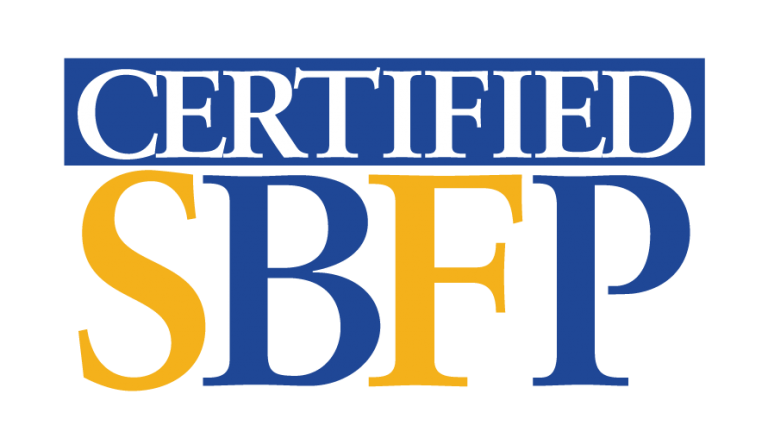 Its aim is to become an industry standard. The newly launched Certified Small Business Finance Professional (CSBFP) program will first become available at Broker Fair in New York City on December 6th.
Its aim is to become an industry standard. The newly launched Certified Small Business Finance Professional (CSBFP) program will first become available at Broker Fair in New York City on December 6th.
But what’s the difference between this one and others? Steve Denis, Executive Director of the Small Business Finance Association (SBFA), says that his organization’s backing of the CSBFP makes all the difference.
“We’re the largest trade group in the space without question,” Denis said, adding that the group has about 30 members, several of which are among the largest in the country.
“It’s going to be a signal that you’re doing things the right way and want to go out of your way to show that you are doing things the right way,” Denis said.
The certification will require applicants to complete a course centered on understanding products, laws governing the industry, and compliance. The certification exam will focus on testing applicants’ ability to understand key concepts and best practices.
This course is designed to be taken in person. While it will be available at Broker Fair, Denis said that they plan to partner with other events as well.
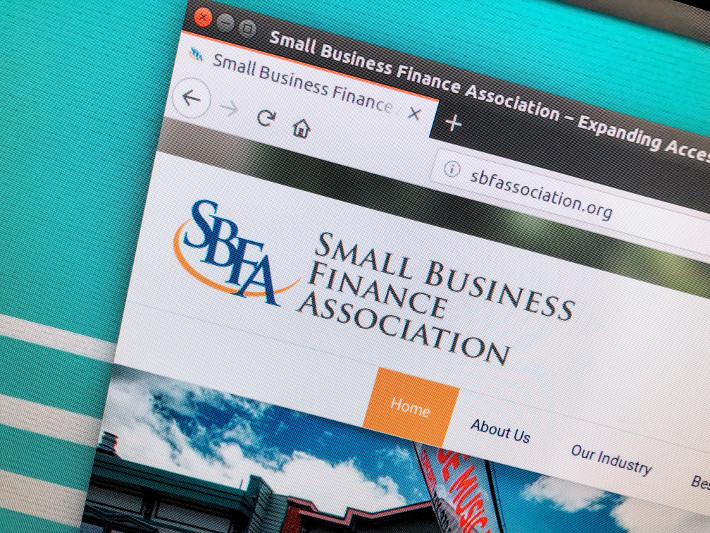 “We’re going to focus on as many in-person training sessions as possible,” he said.
“We’re going to focus on as many in-person training sessions as possible,” he said.
And it’s not just salespeople they’re targeting. Underwriters, collectors, support staff, and more are not only all welcome to obtain their certification, but are also encouraged.
“It’s open to anyone in the industry,” Denis said. “The more the better. […] It will send a very strong message that there is a diverse group of people that want to take a certification and take it very seriously.”
In the official announcement, it was stated that it would be more than just a stamp and that certified professionals would also be provided with “a way to connect, learn and grow beyond the initial education process.”
Denis compared the CSBFP standard to CFPs (Certified Financial Planners) in the financial advisor space.
Attendees of Broker Fair 2021 can take the course at the event at no extra charge.





























